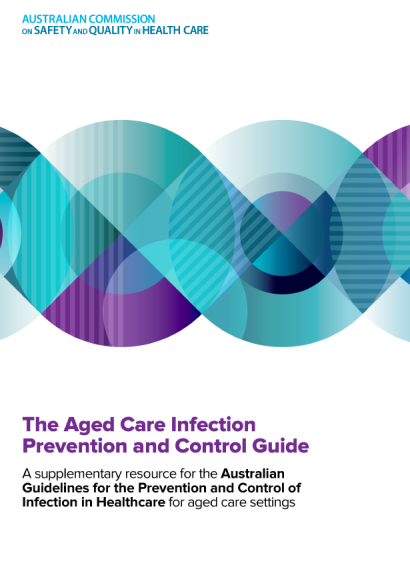The Commission has developed a suite of resources to assist health service organisations to implement AS 5369:2023 Reprocessing of reusable medical devices and other devices in health and non-health related facilities.
Evidence-based systems are used to mitigate the risk of infection. These systems account for individual risk factors for infection, as well as the risks associated with the clinical intervention and the clinical setting in which care is provided. A precautionary approach is warranted when evidence is emerging or rapidly evolving.
Patients, consumers and members of the workforce with suspected or confirmed infection are identified promptly, and appropriate action is taken. This includes persons with risk factors for transmitting or acquiring infection or colonisation with an organism of local, national or global significance.
The health service organisation is clean and hygienic and has well-maintained and configured engineering systems for the delivery of effective models of care.
Surveillance
These posters show the key steps for standard precautions and when caring for patients who require transmission-based precautions, due to a known or suspected infection.
Effective infection prevention and control practices reduce the risk of transmission of infections between patients, healthcare workers and others in the healthcare environment.
This page includes information on Clostridioides difficile infection (CDI) and reports on monitoring the burden of CDI in Australian hospitals.
This resource provides guidance to assist the appropriate placement of patients receiving care in healthcare facilities, which is an important element of transmission-based precautions to prevent the spread of infection.
Integrating clinical governance
Integrating clinical governance
This page includes resources for implementation of the Preventing and Controlling Infections Standard of the National Safety and Quality Health Service (NSQHS) Standards and National Safety and Quality Primary and Community Healthcare Standards (Primary and Community Healthcare Standards).
The Commission has developed new training pathways for Hand Hygiene Auditors (previously called General Auditors) and Hand Hygiene Auditor Educators (previously called Gold Standard Auditors).
The Australian Guidelines for the Prevention and Control of Infection in Healthcare was jointly developed by the Commission and the NHMRC. The Guidelines, together with Commission guidance for specific organisms, provide healthcare workers and health service organisations with support to develop tailored local protocols and processes for infection prevention and control.
Prevention and control of VRE is an important patient safety issue for Australian healthcare.
Data on hand hygiene compliance are collected by states and territories for all public health service organisations, and by many private health service organisations, and reported nationally three times per year for the National Hand Hygiene Initiative (NHHI).
Annual revalidation is a method of ensuring all Hand Hygiene Auditors and Hand Hygiene Auditor Educators remain up to date with their knowledge of the 5 Moments and audit practices. This ensures valid and reliable data for the National Hand Hygiene Initiative (NHHI).
The NHHI LMS hosts the hand hygiene, infection prevention and control modules and hand hygiene auditor online learning.




